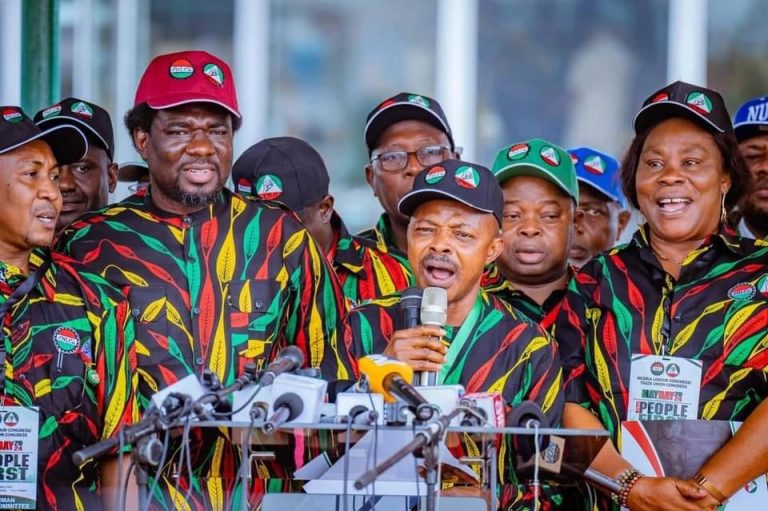Organised Labour in Nigeria is likely to commence a nationwide strike from Monday, June 3, due to ongoing disagreements over a new minimum wage. This follows the abrupt adjournment of a recent tripartite committee meeting on the national minimum wage (NNMW), which saw labour representatives walk out in protest against the government’s negotiation approach.
The tripartite committee reconvenes today after labour’s negotiating team, represented by the Nigeria Labour Congress (NLC) and the Trade Union Congress of Nigeria (TUC), staged a walkout during last Tuesday’s meeting. The walkout was prompted by the government’s marginal increase of its wage offer to N60,000, up from N57,000 offered on May 22, which labour deemed insufficient.
Labour had previously demanded a minimum wage of N615,000, but the government’s initial offers of N48,000 and subsequent N54,000 from the Organised Private Sector (OPS) were rejected, leading to the current impasse.
In a letter dated May 29, Ekpo Nta, member/Secretary of the committee on behalf of the National Salaries, Incomes and Wages Commission (NSIWC), invited stakeholders to the 7th meeting of the Tripartite Committee on National Minimum Wage, scheduled for today at Nnamdi Azikiwe Hall, Nicon Luxury Hotel, Abuja.
### Labour Mobilizes for Potential Strike
Sources within organised labour indicated that a nationwide strike might commence on Monday, depending on the outcome of today’s meeting. A labour leader, speaking anonymously, said: “The outcome of tomorrow’s (today’s) meeting will determine our next line of action. If the meeting is fruitful, better for everyone. But if the government continues with its carefree attitude and disdain for workers’ welfare, nothing will stop us from going on strike from Monday. We are already mobilizing for the strike.”
The labour leader emphasized that the one-month ultimatum given to the government to conclude negotiations on the new minimum wage ends today. He stressed that the issue is statutory, as the old Minimum Wage Act ceased to exist on April 18, and criticized the government’s lack of seriousness in addressing workers’ issues.
### Governors’ Alleged Gang-Up
Labour sources also alleged that state governors are colluding to stall the negotiation process. A presidency source acknowledged that many state governors are unwilling to commit to a reasonable new minimum wage, putting pressure on the federal government.
“Even though what labour is demanding is on the high side, the Federal Government is under pressure from state governors not to give in to labour’s demand. They insist they lack the resources to pay a high wage,” the source said.
### Federal Government Appeals for Understanding
The Minister of State for Labour and Employment, Nkeiruka Onyejeocha, appealed to organised labour to be considerate in their demands, citing the nation’s ongoing economic recovery from the COVID-19 pandemic and other economic challenges. She emphasized the government’s commitment to securing a fair wage while balancing economic realities.
“We appeal to organised labour and other stakeholders to be considerate and patriotic in their demands, recognizing that our economy is still recovering from the pandemic and other global economic shocks,” Onyejeocha said.
The minister noted that last Tuesday’s meeting with labour was a significant step towards securing a fair wage, and expressed optimism about reaching a positive outcome in today’s discussions.
### Labour’s Response and Future Actions
Labour leaders remain critical of the government’s approach, citing the inclusion of governors who have previously breached the 2019 Minimum Wage Act in the negotiating committee. They argue that these governors have not fully implemented the N30,000 minimum wage and are resisting further wage increases.
“We have lined up a series of industrial actions, including shutting down the economy, to speed up the process. We are just waiting for the May 31 deadline to take the next line of action,” a labour leader stated.
As negotiations resume, the government has increased its offer from N57,000 to N60,000, hoping to reach a mutually beneficial agreement. However, organised labour insists on more significant concessions to meet workers’ expectations and avoid the impending strike.

